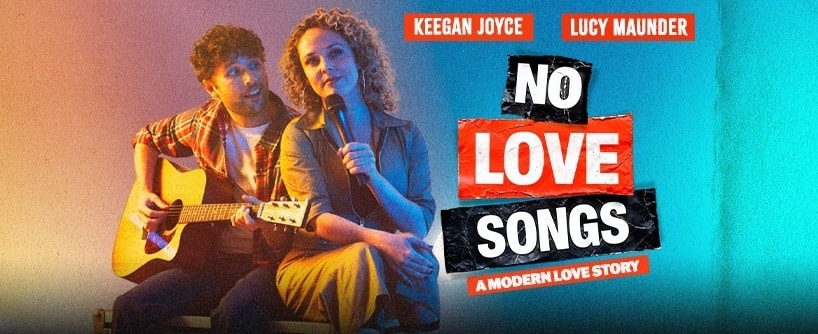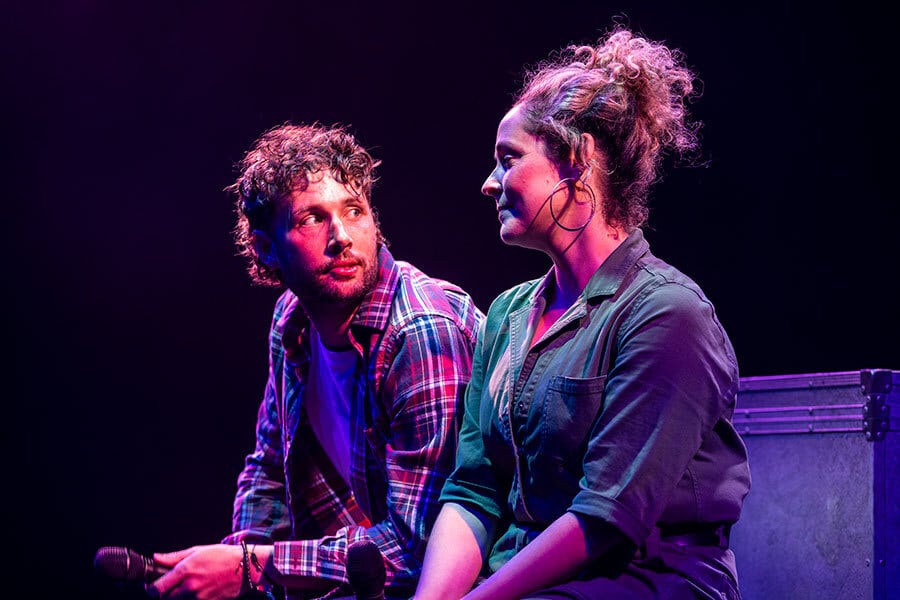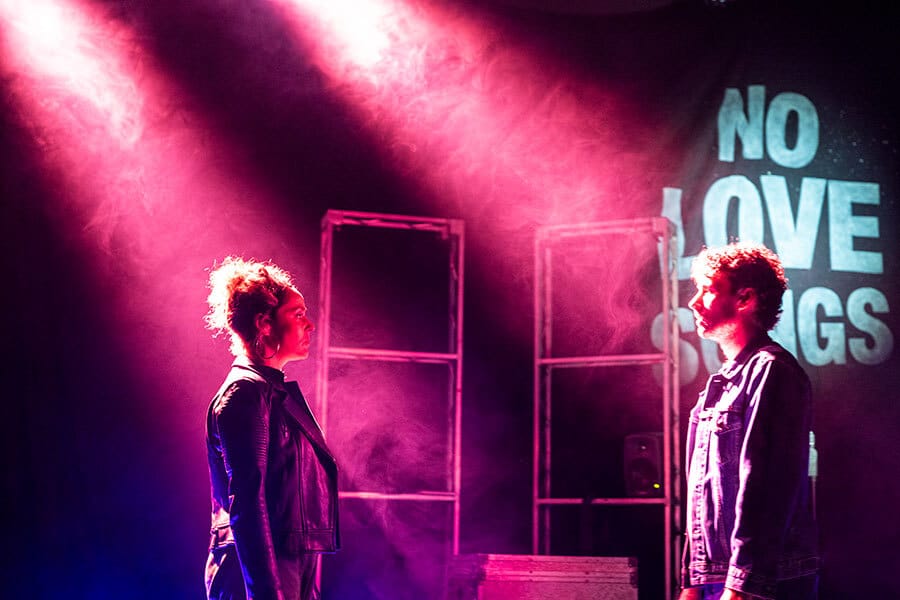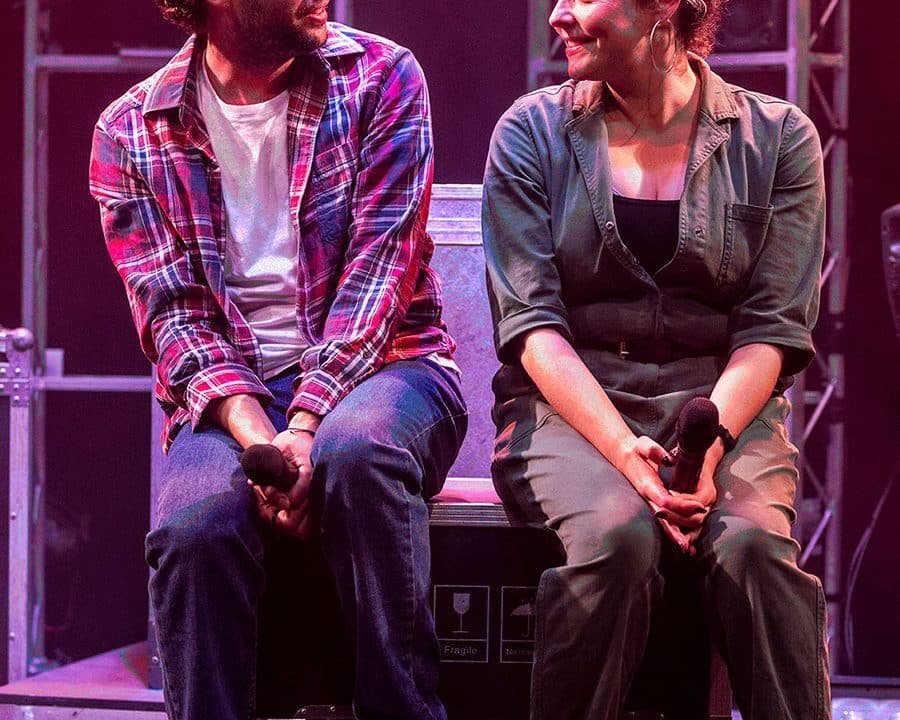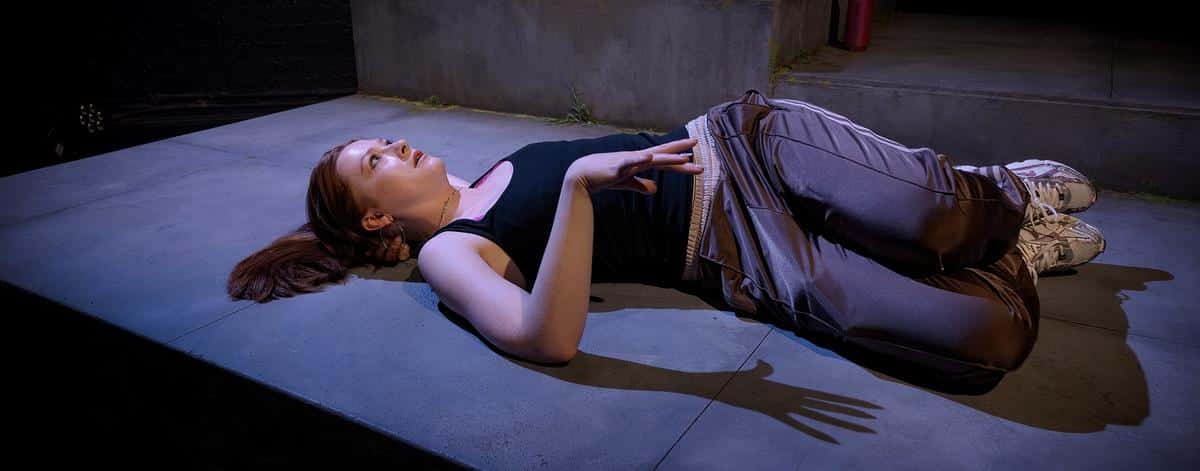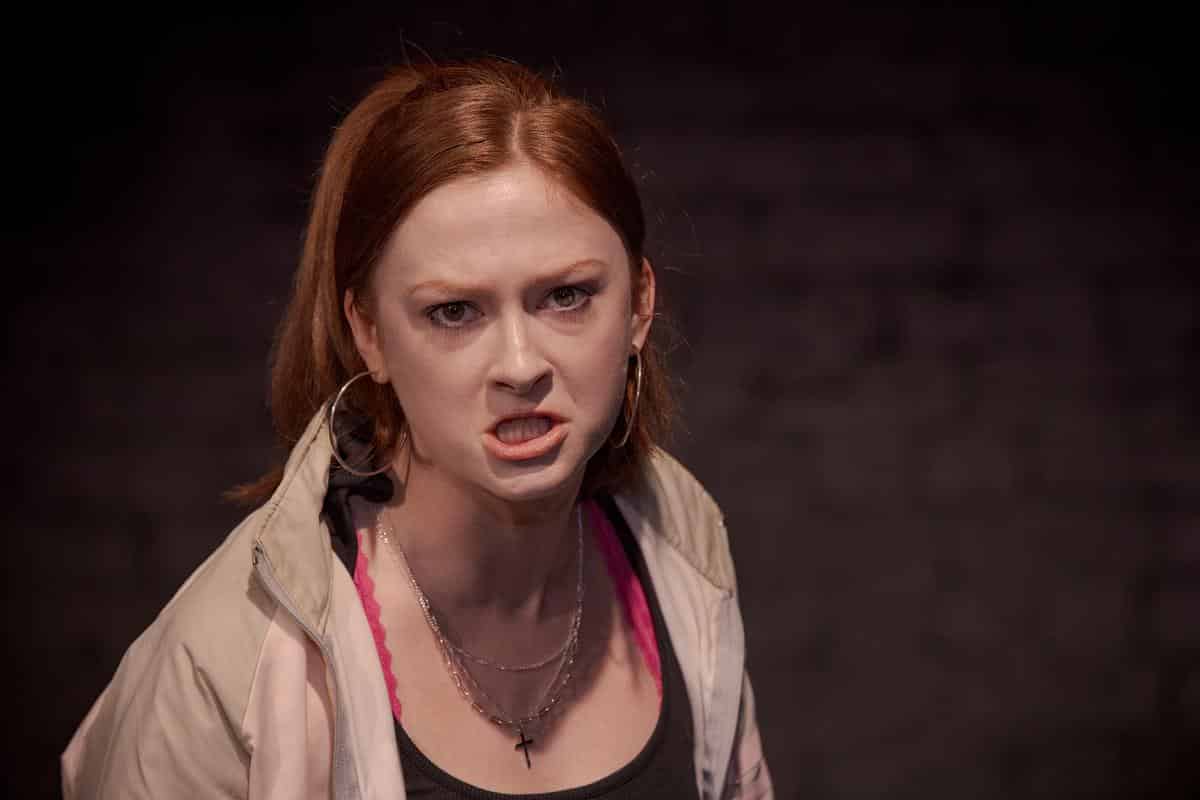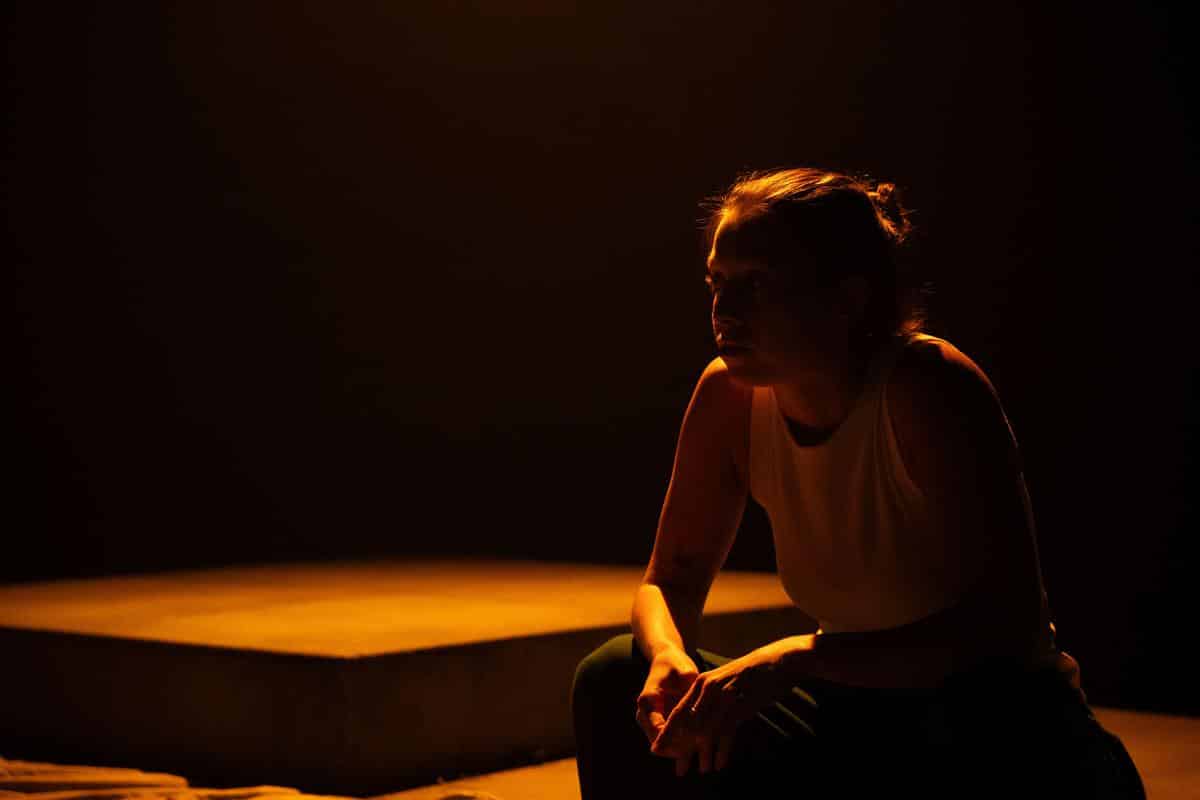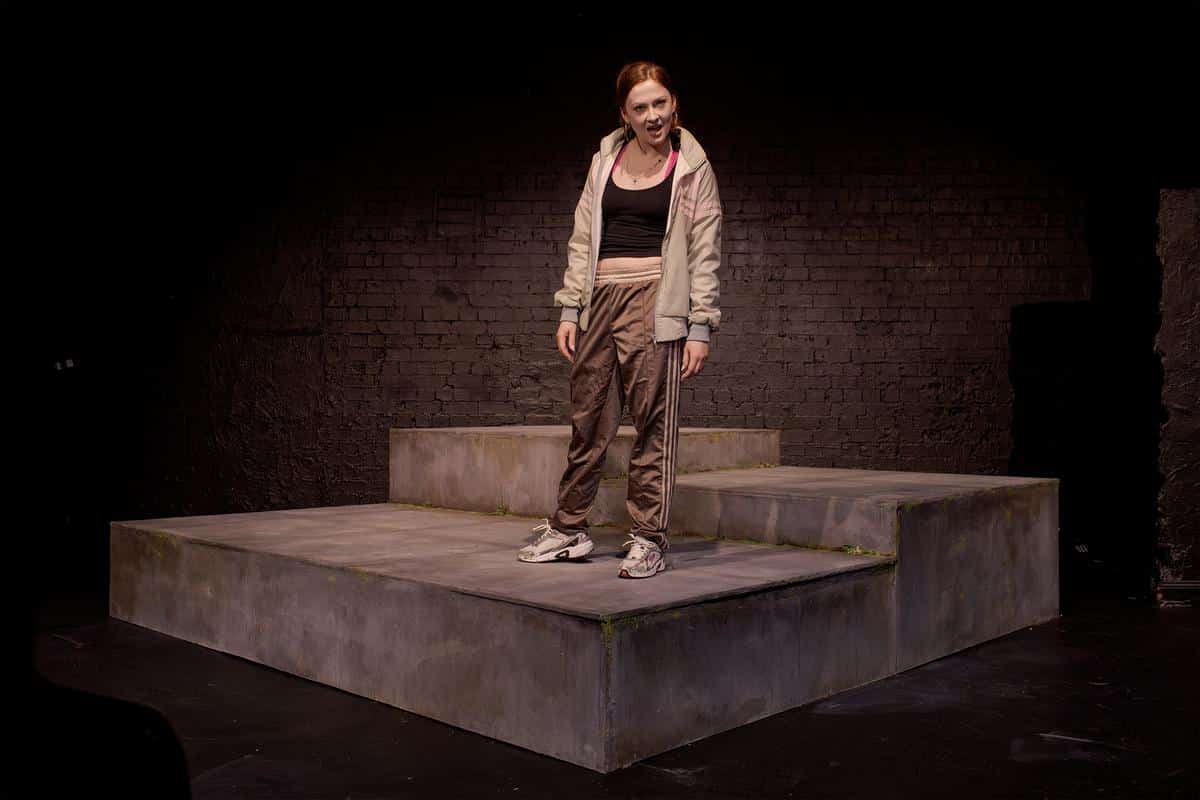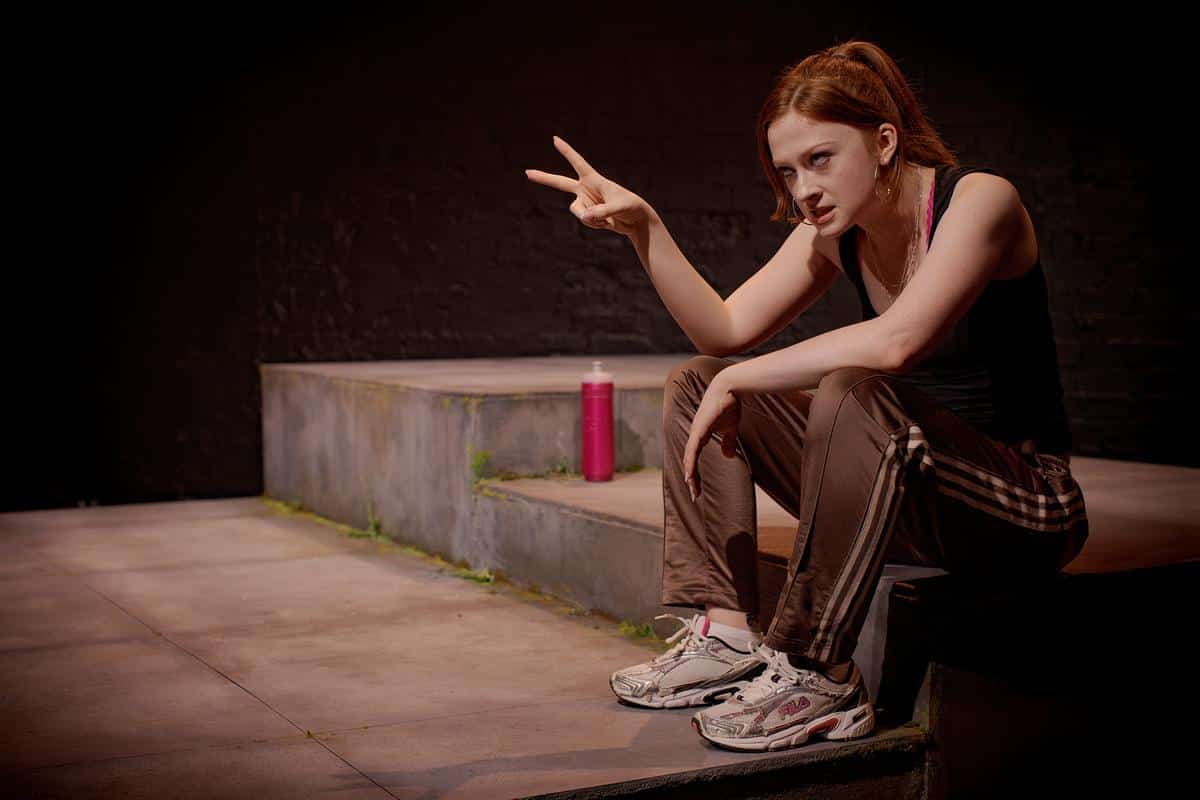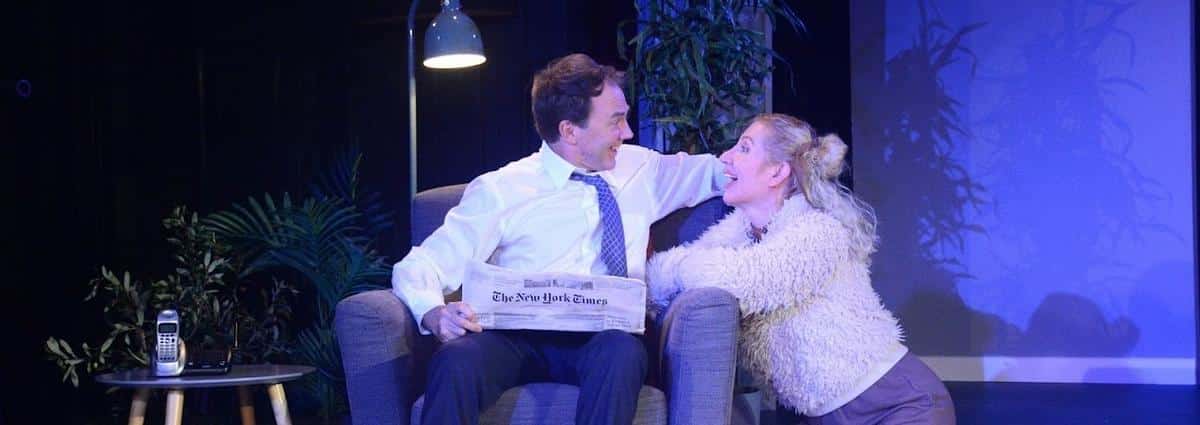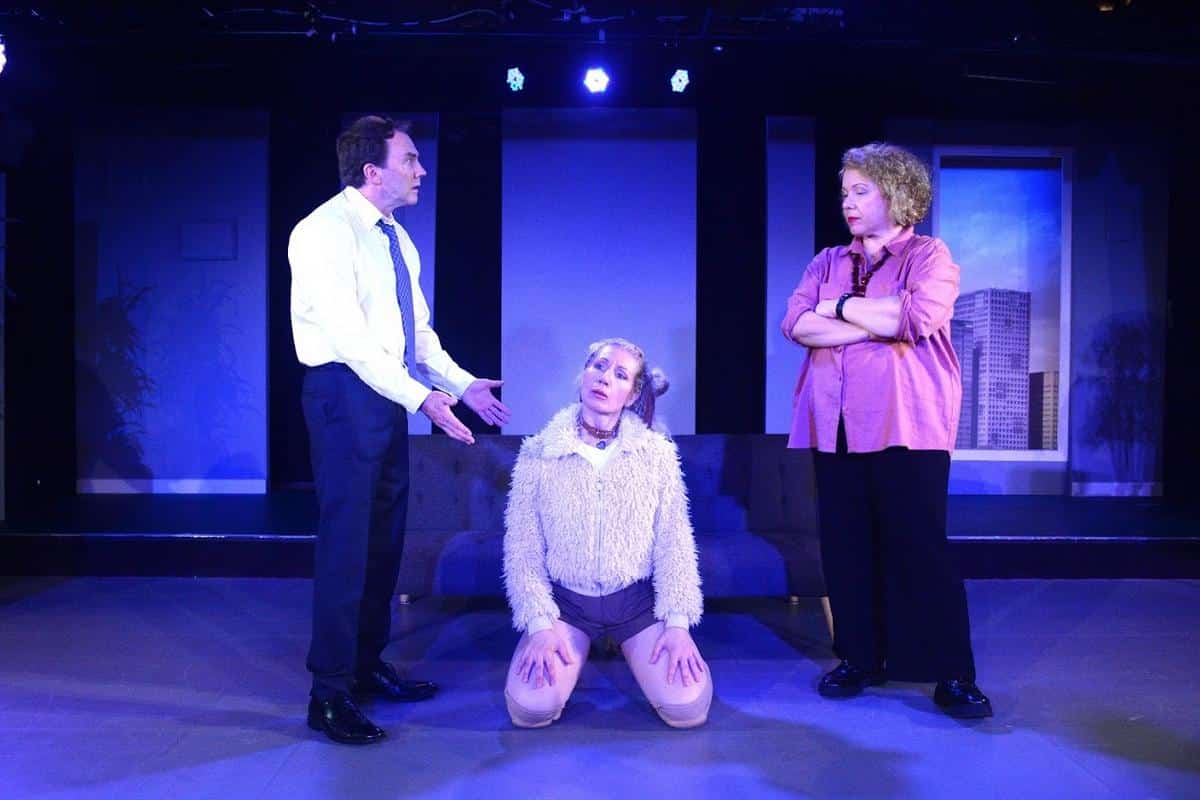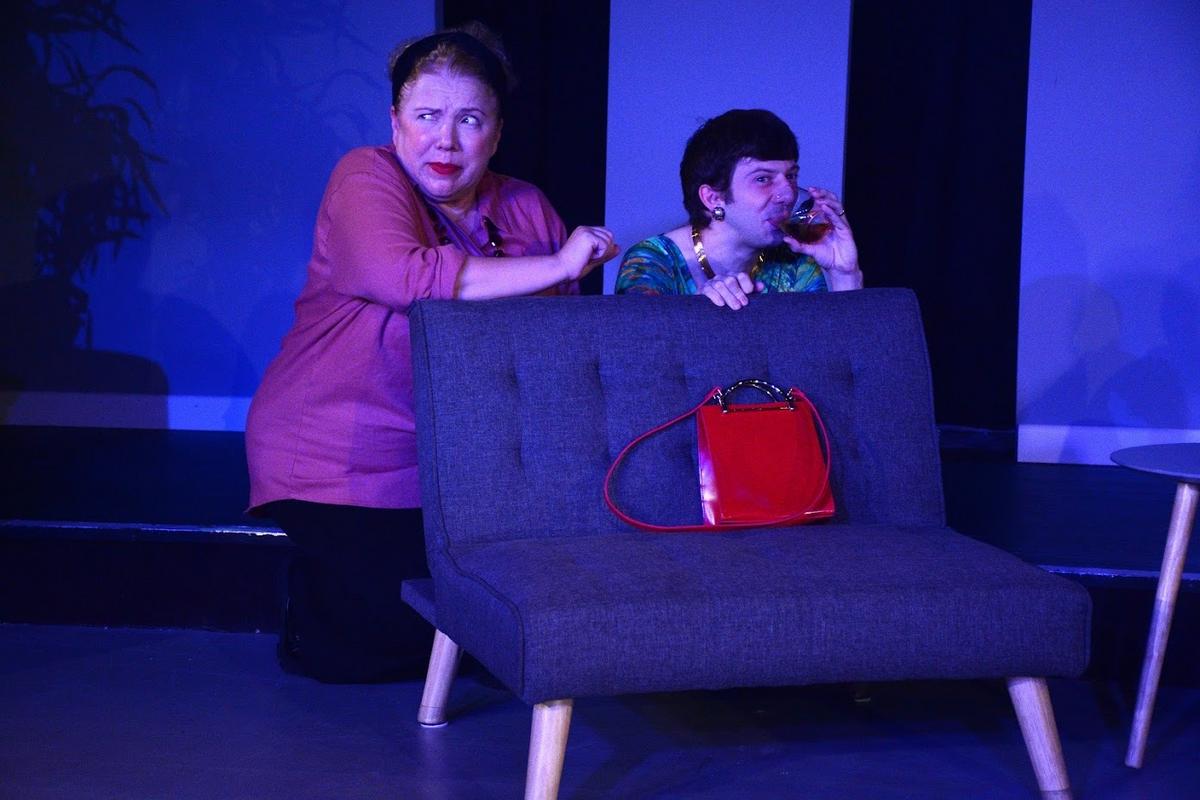It’s evening in a New York townhouse. Plush pillows adorn the bed, and the room furniture’s white colour palette portrays understated luxury. Jazz plays as the audience is seated. I loved the director and set designer Joy Sweeney’s selection of extra-long curtains, which gave the set a high ceiling and confirmed the architecture of an upper-class Manhattan residence.
This is a room of affluence and perhaps also influence.
Terrence McNally’s It’s Only A Play could be set in any era, but it’s soon clear from the references to Broadway musicals mentioned that it’s set in the present day. We join a group of creatives (and a coat check boy) after the opening night of playwright Peter Austin’s (Nick Roberts) play named “The Golden Egg”. What “The Golden Egg” is about remains a mystery for the entirety of the play, but it doesn’t matter. What matters to these characters is how it is received by Broadway’s top theatre critics. McNally’s play shows how powerful the weight of a good or bad theatre review can affect the future of a production and the survival of some theatre venues.
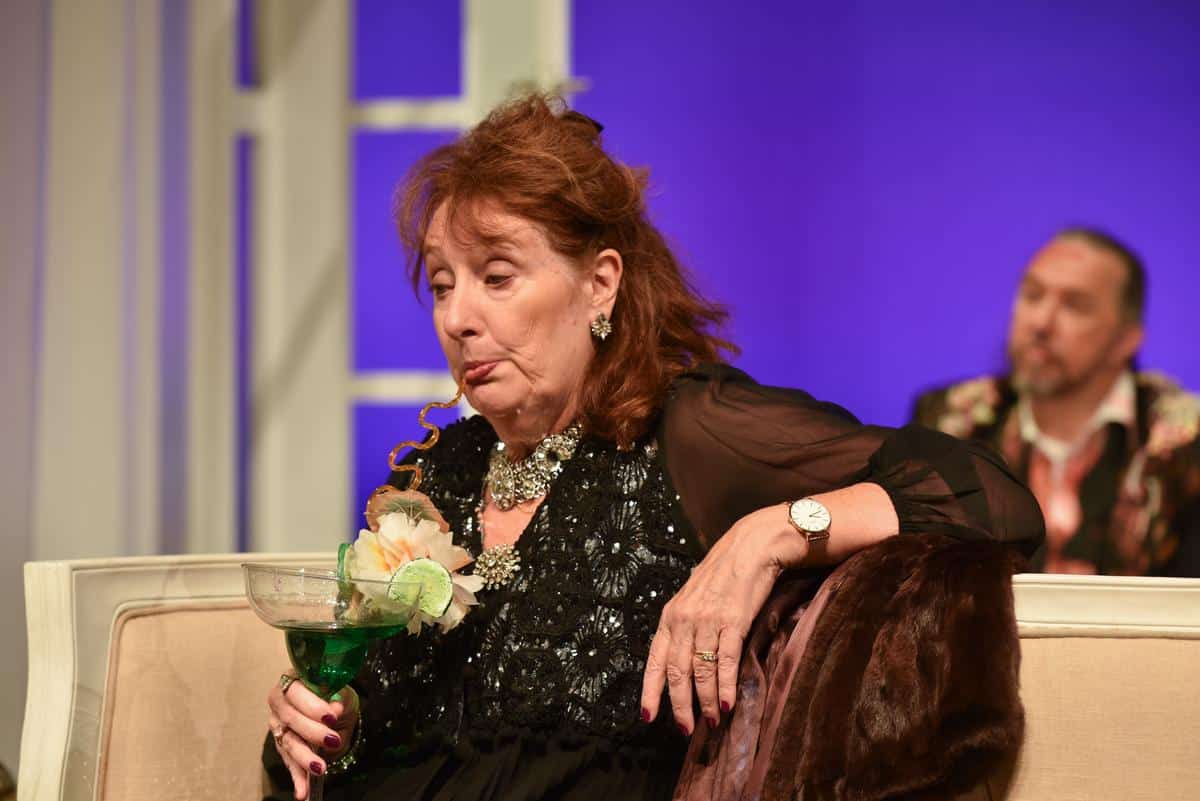

This is a comedy with many big characters, oversized personalities, and even larger egos. James Wicker (played with self-centred relish by Ross Alexander) is Peter’s best friend who has come to support Peter on his big night. James had previously turned down Peter’s offer to play a character in his play, instead choosing the path of acting in a long-running series on television. Was he viewed as a sellout as he swapped over to television? It was interesting to see how Ross portrayed friendship with his character’s feelings of jealousy over casting, and the interaction between he and Peter with unfavourable comparisons being made between being a Broadway theatre actor and a television series actor.
Gus (Cameron Drake) the wannabe actor, delivers a light hearted distraction whilst everyone waits for the reviews to come in. He brings several coats into the room, ceremoniously announcing who they belong to, and dumps them on the bed, which gains a lot of laughs from the audience. Many coats have their own recognisable star factor, including coats from Les Miserables, Cats, Hamilton and Joseph and the Technicolour Coat. There’s even a musical nod to Wicked performed by Gus.
Heather Pitt’s character Virginia Noyes has a feisty ‘tell-em-how-it-is’ spunk. Virginia starred in Peter’s play that night and eagerly waits to see how her return to the stage is received. Her retelling of a certain dance onstage due to an ankle monitor was funny.
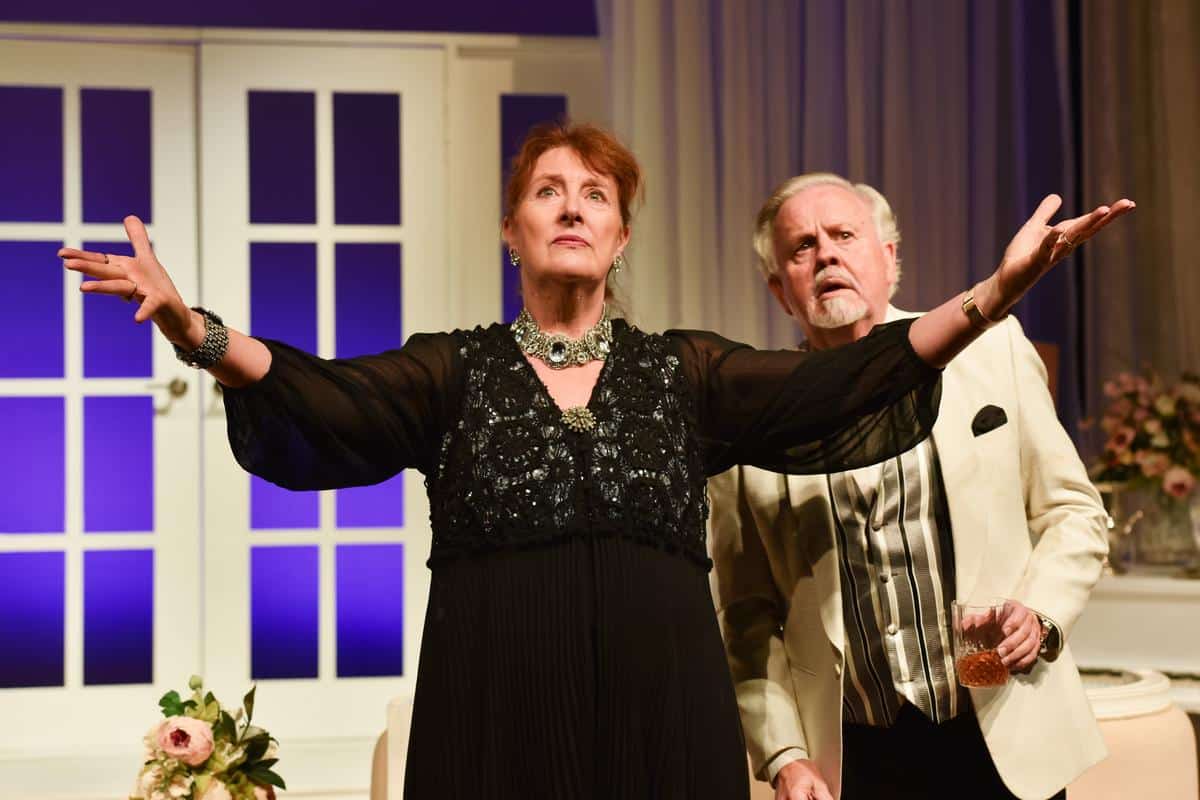
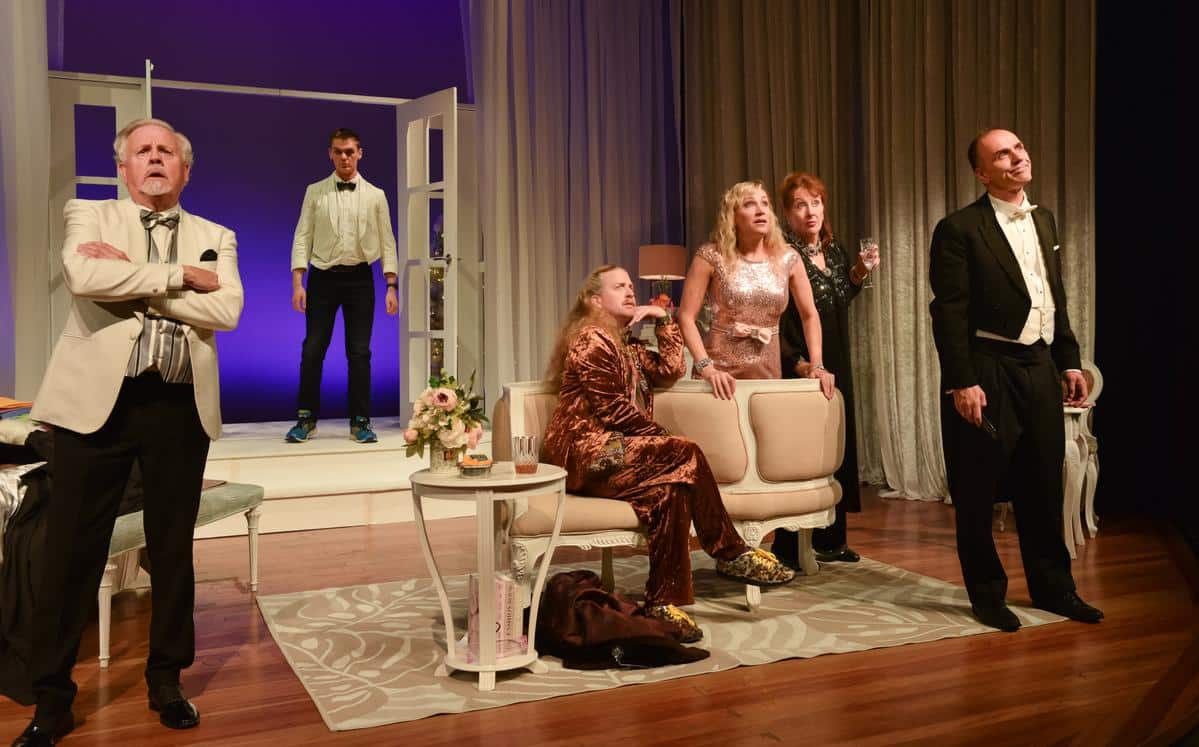
Julia Budder, played by Cassandra Gorman, is the producer of “The Golden Egg”. She decided to back Peter’s play and brings hope to the room, as well as a certain fragility. Clive Hobson’s character Ira Drew is a harsh film critic. He throws a barb at Peter: “I like you personally, it’s your play I can’t stand” is one insulting comment, amongst many others.
Tim Wotherspoon, who plays the director of “The Golden Egg” Frank Finger, is a standout. Frank Finger is a flamboyant, sensitive and dramatic character, full of hair tosses and bouts of kleptomania. His highly successful previous projects prompted a potential imposter syndrome line “I need a flop!”. The dramatics with his ‘invisible cloak’ (a nod to Harry Potter perhaps?) had the audience laughing.
Director Joy Sweeney has successfully led The Pymble Players’ first performance into their new performance theatre venue – The Zenith Theatre in Chatswood. Congratulations to The Pymble Players on their opening night.
Finally, what did the theatre critic Ben Brantley from The New York Times and other theatre critics have to say about “The Golden Egg”? No spoilers here – the second act is filled with the characters’ reactions, so you’ll have to see it to find out!
It’s Only a Play performances:
14 March 2025 – 22 March 2025.
Tickets: $35 Concession Card holders $30
To book tickets to It’s Only A Play, please visit www.pymbleplayers.com.au/its-only-a-play.
Photographer: Daniel Ferris

